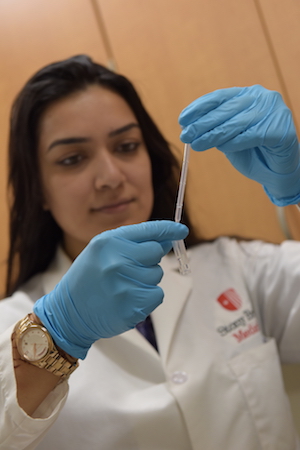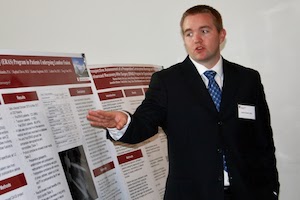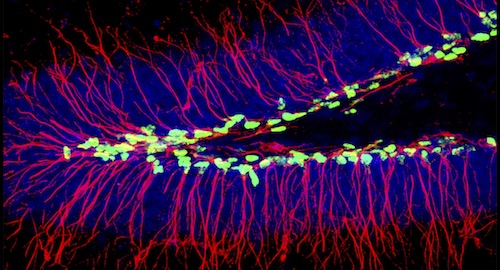Mission

The Department of Anesthesiology has outstanding infrastructure for conducting clinical research, QA/QI projects. The department also has a strong and growing group of basic research scientists investigating fundamental questions of importance to neuroscience and to anesthesiology. This year (based on 2017 data), Stony Brook’s Department of Anesthesiology was ranked #4 in NIH funding for all anesthesia departments in the United States.
Clinical Research
We have excellent mentors who have a track record of assisting trainees to design, complete, and publish innovative projects. For example, the Chair (Dr. Gan) and Vice- Chair for Clinical Research (Dr. Bennett-Guerrero) have both mentored countless individuals over the last 25 years.
In addition to expert mentoring, there is dedicated departmental infrastructure to support research including clinical research coordinators, data management and biostatistical expertise, and clinical research space with patient stretcher, monitoring, IV infusion pump, -80 and -30 freezers, refrigerator, and refrigerated centrifuge. The department also offers seed money for promising projects and dedicated research time for residents during the CA-3 year.

The department is also extremely active in quality improvement projects, especially Enhanced Recovery After Surgery (ERAS). Our Chairman (Dr. Gan) was the founding President of the American Society of Advanced Recovery (ASER) and is an internationally recognized expert in enhanced recovery. We have a dedicated ERAS coordinator who has been helping us expand from 4 to approximately 10 active protocols in different surgical procedures. Residents are encouraged to be involved in these efforts and are required to complete a QI or patient safety project during residency.
Basic Science
